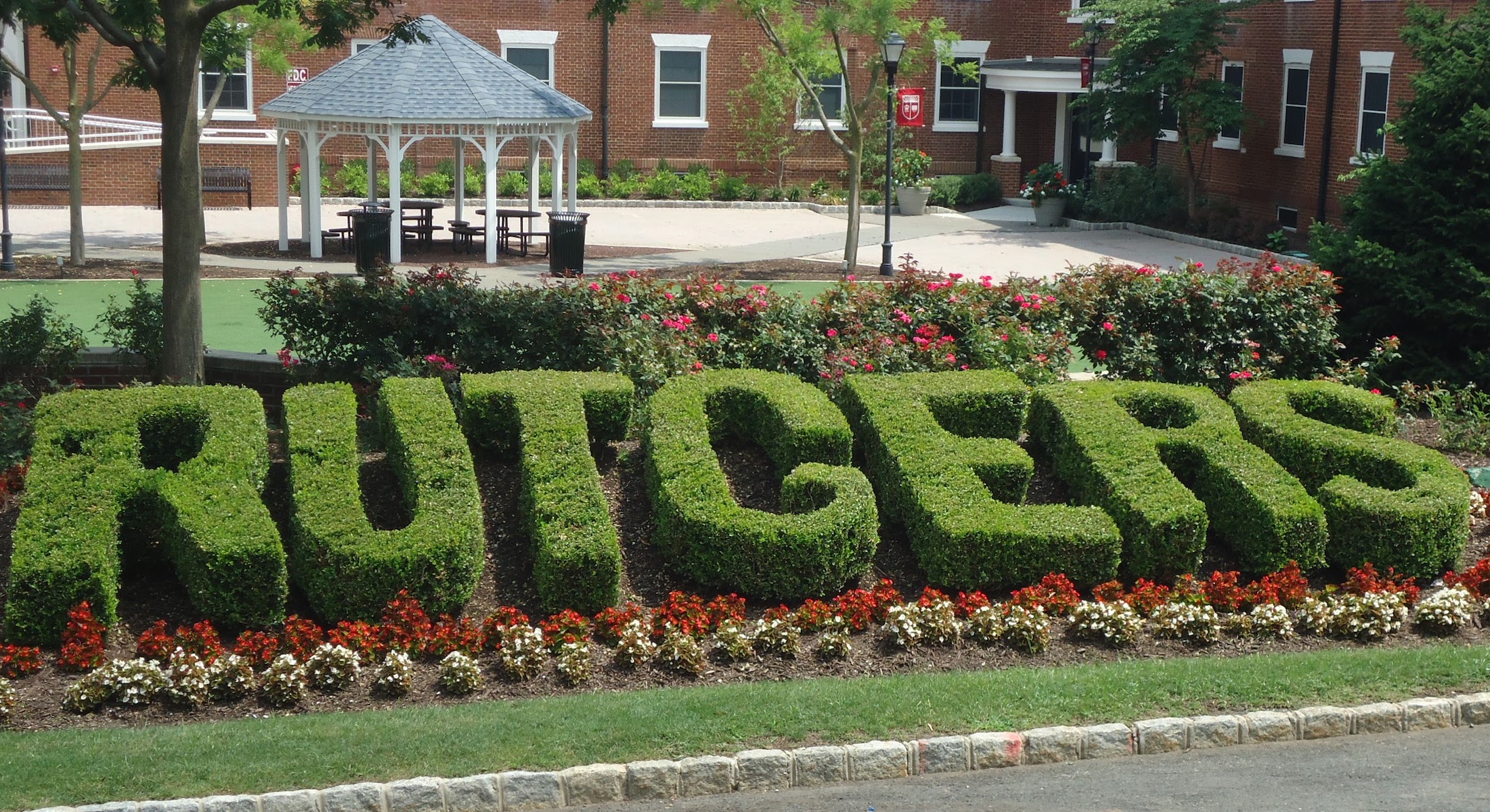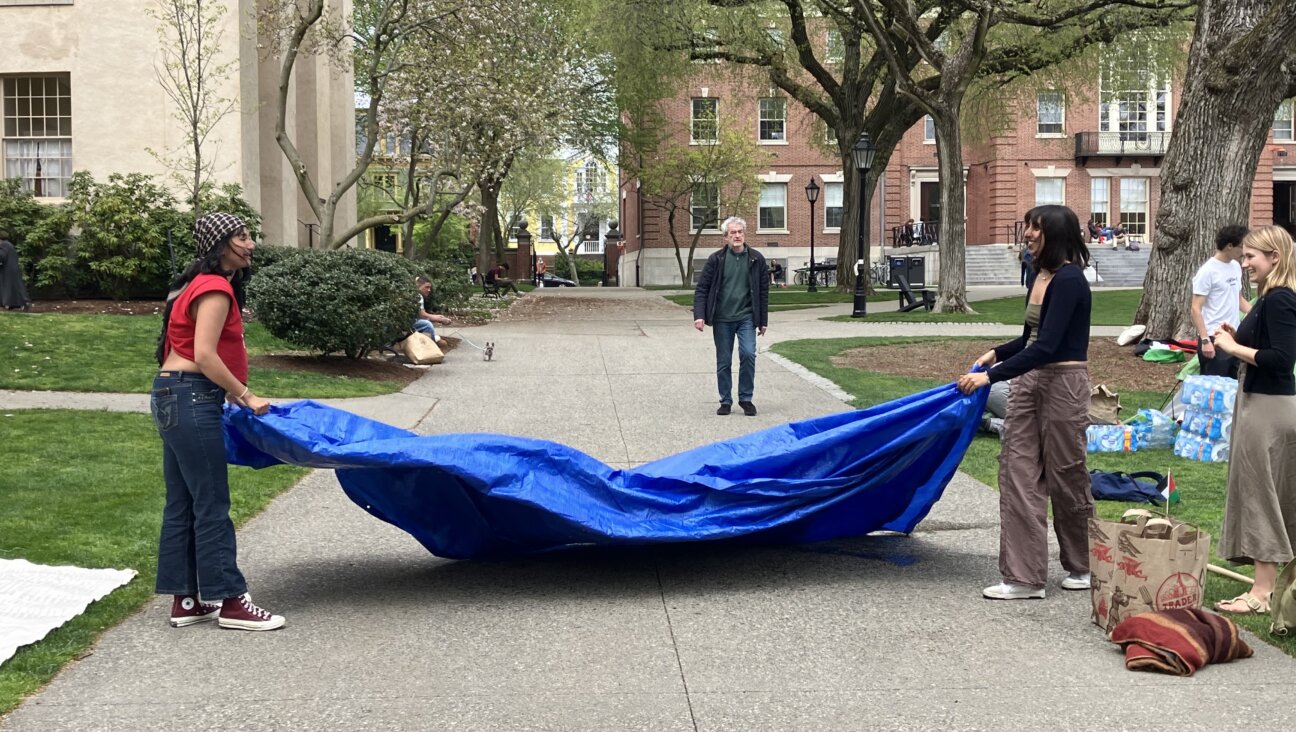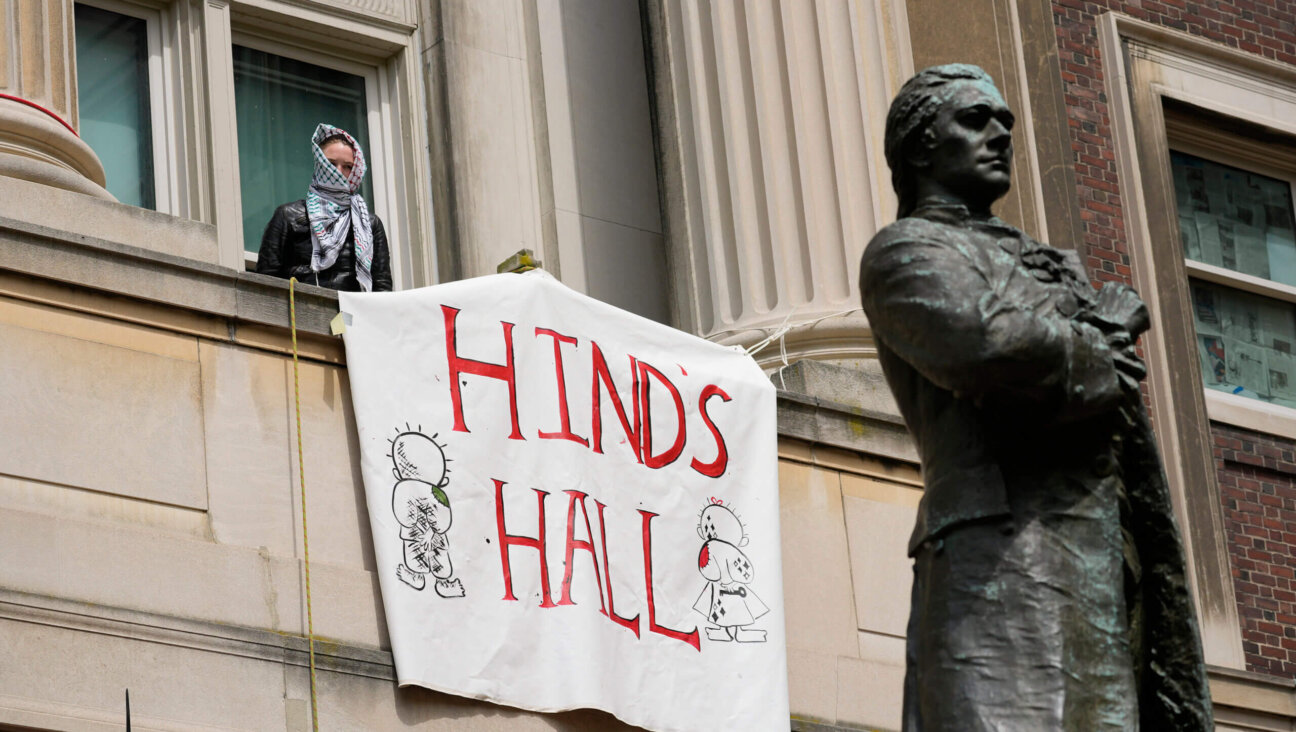Rutgers University student governments vote overwhelmingly to divest from Israel

A hedge outside Rutgers University in New Brunswick, New Jersey, July 30, 2016. (Tomwsulcer via Creative Commons)
Students at Rutgers, the flagship public university in New Jersey, have voted overwhelmingly to call on the administration to divest from companies and organizations that do business in Israel, and to end a partnership with Tel Aviv University.
With 8,000 students out of the 44,000 enrolled at Rutgers’ New Brunswick campus voting, 80% of participating students said the university should “divest its endowment fund from companies and organizations that profit from, engage in, or contribute to the government of Israel’s human rights violations.” On a separate question, 77% of students called for termination of the partnership with TAU, including in the New Jersey Innovation and Technology Hub,” a planned, future educational and research collaboration project that Rutgers and Tel Aviv University entered into in 2021.
The votes were cast between March 25 and 29, and the results announced Tuesday. “We applaud the students of Rutgers University-New Brunswick for using their voices to vote,” said the Rutgers University Student Assembly, which organized the vote. “RUSA aims to uphold the values of our undergraduate population, with our foremost commitment being to listen to the voices of the student body.”
An identical referendum was also held at Rutgers’ smaller campus in Newark, with 71% students voting to divest, and 65% voting to end the university’s TAU partnership. On the Camden campus, 71% of a total of 516 students — just over 8% of Rutgers Camden’s combined undergraduate and graduate student population — voted to divest the university endowment from specific companies that do business in Israel.
Divestment has increasingly become a focus of pro-Palestinian and anti-Zionist activism on U.S. campuses in the aftermath of the Oct. 7 Hamas attack on Israel and the devastating war in Gaza it sparked.
At the University of Virginia, students voted in March to call for the university to submit to an audit of investments that support Israel’s “apartheid regime and acute violence against Palestinians” and end them. A planned vote for a similar effort at Harvard University was postponed indefinitely last week by an “obscure procedural motion,” the Crimson reported. And students at Clark University hope to ask an additional question in their upcoming referendum on whether dining halls and student organizations that receive university funding should “adhere to BDS movement demands.”
Jonathan Holloway, the president of Rutgers, rejected calls from student groups like Students Supporting Israel to block the vote. “I did not and would not do so because I respect RUSA’s ability to self-govern and because I trust Rutgers students to engage in responsible civic practices,” Holloway said in an April 1 letter to students. Holloway said in the letter that he had not taken a public position on the referenda but that he generally opposes because he believes “in engagement, not isolation.” He also called for a temporary ceasefire, release of Israeli hostages and for the free flow of humanitarian aid in Gaza.
Tensions over Israel have remained high at Rutgers, as at many schools across the U.S., since the Oct. 7 attacks, in which the Israeli government says Hamas killed 1,200 people and kidnapped more than 200, and the subsequent war in which the Gaza health ministry puts the death toll above 33,000. The university has large Jewish and Muslim student populations, and in December suspended its chapter of Students for Justice in Palestine, reinstating it a month later.
In March, the Republican-controlled U.S. House of Representatives added Rutgers to a list of schools under investigation for antisemitism. And the Anti-Defamation League gave the school a “D” on its controversial Campus Antisemitism Report Card released last week, citing an outstanding Title VI investigation regarding incidents in October and November.
Also last week, the university’s Center for Islamic Life was vandalized during the Muslim holiday of Eid al-Fitr.
View this post on Instagram
Francine Conway, chancellor of the New Brunswick campus, condemned the attack on the Islamic center as a “desecration of a religious and community space.”
“Such acts of hatred and bigotry against anyone in our community have no place at Rutgers and will not be tolerated,” she said in a statement. “We must recommit to respecting and embracing people of all faiths and identities.”
The university released an action plan to combat antisemitism and Islamophobia on campus in December.

I hope you appreciated this article. Before you go, I’d like to ask you to please support the Forward’s award-winning journalism this Passover.
In this age of misinformation, our work is needed like never before. We report on the news that matters most to American Jews, driven by truth, not ideology.
At a time when newsrooms are closing or cutting back, the Forward has removed its paywall. That means for the first time in our 126-year history, Forward journalism is free to everyone, everywhere. With an ongoing war, rising antisemitism, and a flood of disinformation that may affect the upcoming election, we believe that free and open access to Jewish journalism is imperative.
Readers like you make it all possible. Today is the last day of our Passover Pledge Drive and we still need you to step up and make a gift to sustain our trustworthy, independent journalism.
Make a gift of any size and become a Forward member today. You’ll support our mission to tell the American Jewish story fully and fairly.
— Rachel Fishman Feddersen, Publisher and CEO
Join our mission to tell the Jewish story fully and fairly.
Today is the last day to contribute.
























